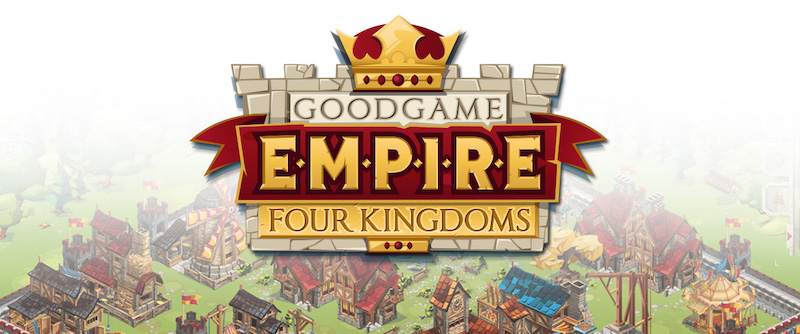· 5 min read
Studio Spotlight: Lessons From Goodgame Studios

Sarah Impey
Content Creator at GameAnalytics
Thanks for sitting down and chatting with us today. Before we get started, are you able to give us a brief history of Goodgame Studios?
Of course. The Wawrzinek brothers (Kai and Christian) and their friend Fabian Ritter founded Goodgame Studios back in 2009. Within the first year, the studio launched 3 games, and quickly grew to around 100 employees.
We’re amazed at how successful our games have been these past few years. In 2012, our free-to-play real-time strategy game, Goodgame Empire, received a European Games Award in the “Best Browser Game” category. And in that time, we also hit our first ever milestone – 100 million players. 5 years later, we reached yet another milestone as we generated $800 million in revenue (yes, we definitely popped open a bottle of champs).
Our most recent news would be our acquisition with Stillfront Group AB. Since they acquired us in 2018, we’ve been working with our partner studios to become the leading group of indie game creators, publishers, and distributors. We’re extremely fortunate with how things are going, and I’m looking forward to what the next few years bring!
So what were the biggest challenges you faced back when Goodgame started? How do they compare to the ones you face today?
Back then, our main goal (and challenge) was to scale. The questions that often crossed our minds were how we could scale our product well, who would the best audience be, and how much it would cost us to prepare for a global rollout. We also had to consider the different tech infrastructure, payment services we should look into, and whether or not we should localize our games.
But at the time, we didn’t have a lot of experience. As with any new company, we really had to identify, rate, and figure out what our key challenges were. It’s important for any developer or studio to do this, so you can figure out what steps you need to take to find the right solutions.

Our main focus then was also exploring, investigating, and innovating. Every other meeting, we asked ourselves: What works? What doesn’t? How can we make this better? Now that we’re more established, we can be less vague and explorative. It’s now all about making data-driven business decisions, understanding the market, and asking ourselves: What’s the cost? What’s the benefit? Which existing solutions are the best?
Even though we have a better sense of direction today, we still encounter challenges.
Figuring out how to surpass the growing phase of the free2play market is now what keeps us awake at night. When the free2play market started to mature, we had to shift our focus. Technology definitely started to improve at an expediential rate, so we needed to adapt quickly. We had to start focusing more on user acquisition strategies, and refining our product development.
You joined just as Goodgame Studios’ first hit came out ‘Goodgame Empire’, which led the company to break 50 million downloads. What separates this game from the others?
I’m pleased to say that Goodgame Empire has been a great success for us, reaching over 185 million downloads together with our other mobile title, Empire Four Kingdoms. For over 8 years, we learned that our players seem to really love and resonate with Empire’s medieval theme, and the unique Empire core mechanics have helped create new high-quality content.

All in all, we have generated a total of 385 million downloads with our Goodgame titles. But what separates each game from one another is their unique gameplay and experience. For example, even though the artwork tends to be similar, each game has its own community, storyline, and mechanics that are unique to that title.
If you have a few different games under your belt that have a strong community, then it’s important to keep each game unique (in some shape or form). Cutting corners and reskinning games may not be the best strategy for your studio, so find out how you can make each title fresh and unique.
Being a leader in the MMO mobile gaming space, are you able to share any tips or tricks that you guys have picked up over the years?
Sure thing. The 5 biggest pieces of advice I would give to aspiring developers are:
- Figure out what you want to sell, and how you can scale it. Would this be through virtual goods, or something like a viral loop strategy?
- Familiarize yourself with the strategy you chose. Start by doing some research. Learn from other experts, or even check out your competitor’s games.
- List your strengths, weaknesses, USP’s, and adapt your strategy accordingly. Experiment. Get as much feedback as possible from players so you can keep improving your game.
- Keep your idea simple. If you can’t explain it to your grandparents in less than 5 minutes, then your idea may be too complex. Some of the best games out there have the simplest concepts.
- Measure your game. Data brings in more insights than opinions, and having analytics saves you from being stuck or guessing what you should do next.
Thanks for taking the time to speak to us today. Before you go, are you able to share with us what your biggest piece of advice would be to any aspiring indie developers out there?
You guys have probably heard this a million times by now, but it really is important to be passionate about your product and love what you do. If you don’t really enjoy making games (and I mean love), then it’ll be very difficult for you to progress in this scene.
It takes a lot of hard work and dedication. But that doesn’t mean you can’t be smart. Make sure you do your research, learn from your competitors, and definitely ask for help (a pair of fresh eyes goes a long way).